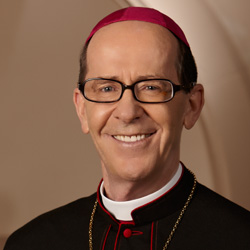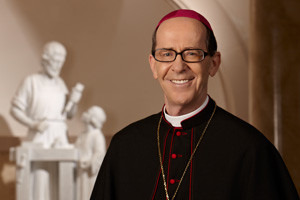
“Come and see.” It was about four in the afternoon when Jesus said this to His first two disciples (Cf. Jn 1:35ff). At once, they accepted His invitation, and nothing would ever be the same again.
Adult converts to the faith like my own father can often tell you an exact time when they heard God’s call to follow Him, and how it brought such wondrous changes for good. To accept Jesus’ invitation to come and be with Him is to initiate a new vision and begin a new life beyond all imagining. When a person responds to this divine call, then the prayer of St. Paul is fulfilled (Eph 1:18f), “May the eyes of your hearts be enlightened, that you may know what is the hope that belongs to His call, what are the riches of glory in His inheritance among the holy ones, and what is the surpassing greatness of His power for us who believe.”
The problem of skepticism
To see with the eyes of the heart one must be ready to let go of what he saw and held tightly before Jesus called. The first two disciples left behind the teacher whom they had followed until 4 p.m. that day, i.e. they left behind John the Baptist, because someone greater was calling them. When Jesus called the fishermen who worked the Sea of Galilee, they left behind their father, nets and boats, in order to follow Him.
To come to faith requires a readiness to let go of one’s own view of reality so as to see things as Jesus reveals them. Various things can hinder our readiness to make this leap of faith. Skepticism, for example, places stumbling blocks in the path to faith for many in secular societies. It urges an endless critique of the Church and her teachings and even a sarcastic scoff at truths about marriage and family, chastity and freedom, the evils of abortion and contraception, and so forth.
This is not to say that our practice of the faith is above criticism. Neither is it the case that all critical thinking is wrong. But an age of rampant secularism can freeze people in an attitude of constant criticism that leaves no room for admiration of the goodness of God and that hardens the heart to His loving initiatives.
When skepticism dominates my thinking and acting, the eyes of the heart become blind to the loving initiatives of God. On other hand, when I surrender in faith to God, “I abandon the self-centeredness of my normal vision and consent to look at reality from God’s perspective” (Avery Dulles, “The Assurance of Things Hoped for: A Theology of Christian Faith,” p. 275).
A contemplative intellect
To receive the gift of faith today, to accept the grace of hearing the voice of Jesus and responding to Him in trust, requires an intellect that is ready for contemplation. At its deepest level, the intellect is contemplative because its purpose is to seek the truth. It is not made to be ceaselessly skeptical.
Faith always begins by God’s initiative, not human effort. Nathaniel discovered this, to his surprise, when Jesus said to him (Jn 1:48), “Before Philip called you, I saw you under the fig tree.” The eyes of our hearts are opened by the loving gaze of Christ. The origin of faith, the initiative that leads to believing in Jesus, always belongs to God, not to us.
Nonetheless, faith is a human act. As the Catechism points out (#154), “Believing is possible only by grace and the interior helps of the Holy Spirit. But it is no less true that believing is an authentically human act. Trusting in God and cleaving to the truths He has revealed are contrary neither to human freedom not to human reason.” We can dispose ourselves to believe and to grow in faith by taking time for adoration. It is a good and holy thing to say, “Open the eyes of my heart, Lord.”
A matter of life or death
“Go into the whole world and proclaim the good news to all creation,” Jesus said, “The man who believes in it and accepts baptism will be saved; the man who refuses to believe in it will be condemned” (Mk 16:15f). To believe in God is a decision with eternal consequences.
Without faith, the work of the Lord is hampered: “Jesus did not work many mighty deeds there because of their lack of faith” (Mt 13:58). The evangelist St. Matthew recorded this fact, to remind believers of the great blessing of believing in Christ and to startle and reawaken consciences dulled through sin by telling the consequences of not putting faith in Him.
Faith can move mountains, for nothing is impossible with God. But skepticism that refuses to believe in God leads to the direst of consequences. May you and I find time to adore and contemplate the Lord Jesus every day. This will lead us to treasure always the gift of faith, and to desire with all our hearts to be instruments that He can use to hand on the precious gift of faith to others.






![[VIDEO] Make Sunday feel like Sunday again](https://www.catholicsun.org/wp-content/uploads/2021/04/2021-YOUTUBE-BISHOP-MESSAGE-THUMBNAIL-ENGLISH-218x150.png)